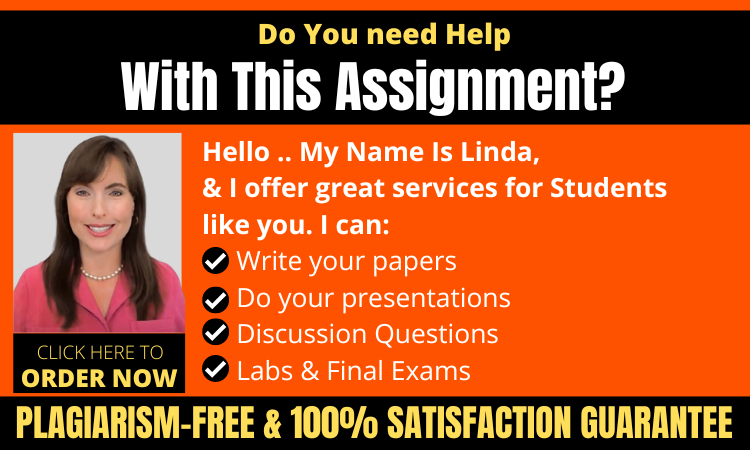● Central Idea: (evaluated according to the relevance, scope and clarity of thestance you take in the paper)
● Organization/Coherence: (the arrangement of your ideas and how wellconnected they are, i.e., the reader’s journey through the progression of yourideas and the signposts you provide the reader)
● Support: (the evidence you provide–be it in the form of facts or details,arguments, or anecdotes, i.e., the degree to which and the manner in whichyou give your reader the opportunity to experience your ideas, feelings,opinions)
● Voice: (not an easy one to define–I like to think of “voice” as the personalityof the writer coming through the words on the page. One of the ways I thinkabout the “voice” of a piece of writing is to consider whether or not I as thereader have a sense of the writer’s relationship- to the topic and to anaudience)
● Sentence Structure/Diction: (the degree to which and the ways in which youjoin and modify ideas within the boundaries of a sentence.
● Standard Conventions: (grammar/punctuation/spelling/format)● Unity: created by a strong, clear controlling idea; topic sentences in body
paragraphs; clear relationship of body paragraphs to controlling idea; clearrelationship of supporting sentences to topic sentence; ideas communicate aclear purpose
● Development: detailed discussion that satisfies the reader’s need tounderstand the writer’s intended points;
● Audience: as shown by appropriate opening and concluding paragraphs;awareness of choice of detail and language appropriate for the reader;
● Fluency: sentences that show appropriate use of logical connectors, such asappositives, adjective clauses, and verbals; language appropriate to the topic,purpose, and audience, avoiding clichés and generalizations;
● Proofreading: sentences that are generally free of basic skills errors, andspelling errors.
The following information contains brief explanations of what the categories of writingeffectiveness mean in terms of letter grades throughout your collegiate experience:
“Outstanding (O)” for Amazing Accomplishment
● Relevance and Scope: Central idea is clearly defined, insightful andappropriate for audience and purpose. You may have taken an ambitiousapproach to the problem you’re addressing in this writing assignment. You’vetaken some risks, tried something difficult and worthwhile, taught your readerhow to see things in a new way, and/or entertained him/her gracefully,memorably.
● Organization/Coherence: Essay structure and paragraphing reflect a clear,logical and smooth development of the central idea. In spite of the complexityand/or thoroughness of your thinking, you’ve found a way to organize yourmaterial so that the progression between ideas is always clear. But yourmethod of organization does not draw attention to itself, distracting the readerfrom the ideas themselves.
● Development: Full and clear explanation of the ideas you’re trying to conveythrough the use of relevant and specific detail (e.g., examples, anecdotes, ametaphor that’s elaborated), and/or commentary (i.e., your interpretation ordiscussion of the details or illustrations you use).
● Voice: Being able to discern the concern, the involvement, the emotion of thewriter coming through the words on paper throughout the entire essay.
● Sentence Structure/Diction: Smooth, varied and elaborated sentencestructure; your style is effective, showing full assimilation of sentencetechniques taught in this class–including a sense of when to use them.Appropriate and fresh word choice. Standard Conventions: Only rare orisolated errors in grammar/ punctuation/spelling.
The general criteria listed above will help you know what to expect. Remember,however, that every essay is different, a unique mixture of strengths and weaknessesthat cannot be precisely described by these general terms. Also, since writers areexpected to develop over the period of the semester, the criteria established here will, ofcourse, offer an ever-increasing challenge. Central ideas, for example, will becomemore intricate as writers progress. The organization will become more controlled, thenmore complex. Support will be derived more and more frequently from outside printsources. Fewer and fewer sentence and word-level problems will obscure the meaningof your ideas. These criteria will remain our evaluative standards as the academic yearprogresses, but they will be used to assess increasingly sophisticated texts.
“Good (G)” for BETTER than adequate
● Relevance and Scope: You’ve been bold enough to extend your thinkingbeyond the basics of the ideas you’re writing about; you’ve offered yourreaders some fresh, entertaining or compelling observations and insights.
● Organization/Coherence: Besides being able to grasp your main point, thereader generally has an easy journey through your essay, rarely feeling lost.You probably provide good signposts, like transitions between paragraphs.
● Development: Your essay offers several good points or raises severalthoughtful questions in your discussion of the topic. Your paragraphs giveyour reader time to experience an idea, walk around inside it and think itthrough with you.
● Voice: Your personality and stance toward your reader and topic comethrough in places in the essay.
● Sentence -Structure: You are using sentence techniques that enhance yourmeaning(s).
● Standard Conventions (grammar/punctuation/spelling): You may have a fewstubborn errors, which you will continue to work on, but they are rare.
“Satisfactory (S)” for Communicatively Competent
The communicatively competent paper adequately fulfills its purpose. It has manycommendable features, certainly including a central idea and a recognizableorganizational structure. It provides support for its thesis through specific examples andelaboration. It contains, at most, only isolated errors in grammar and punctuation, withonly occasional misspellings. The sense of audience and purpose is there, and theauthorial voice may show engagement with the topic. Thus, some bottom line skills youhave clearly mastered:
● Relevance and Scope: You engage the topic/assignment appropriately; youcontribute meaningfully to the conversation you’re joining or a problem youaddress.
● Organization/ Coherence: Your reader gets your main point.● Development: There’s enough detail and discussion that your reader isn’t left
with many confusing questions.● Sentence Structure: You use a clear style that conveys your meaning,
connecting ideas where appropriate.
Despite these strengths, the S paper may be limited in one or more of the categoriesabove. For instance, the central idea may be too general or too predictable; theorganization of the content may lack some necessary transitions; support may beinsufficient in some places. In general, however, this is a sound and acceptable piece ofwriting. You demonstrate adequate Communicative Competence (“S” work) at thecollege level, and for much of the writing you will do in the world beyond school.”Needs Improvement (NI)” for Developing, but not ready for the professor
Some students are astounded when they earn their first “NI” in a college writing class.This grade does not mean you have made no effort, are ignorant or are a hopelesswriter. It does not even mean your essay is impossible to understand or says little ofinterest–though in rare cases these problems may be present. In other words, the NIpaper can be the result of a “good faith” effort by the writer, which for many possiblereasons may have gone astray and so is not yet eligible for a passing grade of O, G, orS. The writer may have picked a topic that did not leave him or her any room to developa position. Alternatively, he or she may have tried tackling an ambitious subject, and inthe process of writing, has been unable to evolve a clear and central idea, or has found
two competing or conflicting ideas he or she has been unable to reconcile, or hasdevoted so much time to working out ideas that the language of his or her presentationis rough. Additionally, usage and proofreading is inadequate, leaving serious errors ingrammar or punctuation. In some cases, a writer may simply not yet have mastered thesentence options or rules of punctuation needed for this level of work. So, the “NI”paper has one or more of the following characteristics:
● No recognizable central idea or one that is far too shallow or ambitious to bedeveloped in an essay;
● No clearly defined or apparent plan of development. or Disunited orincoherent paragraphs;
● Consistently vague and non-specific support;● Consistently inaccurate or inappropriate word choices;● Frequently awkward sentence structure;● Frequent errors, both major and minor, in grammar, punctuation, and spelling.
“Needs Tremendous Improvement (NTI)” for existing, but ineffective andinadequate
The controlling idea is either confusing or absent from the paper. The paper lacks detail,examples, outside sources or a Works Cited page (when research is included).Paragraphs or sentences show serious patterns of error. These papers are generallydifficult to understand. Papers revealing plagiarism earn a “NTI” mark.
Is this the question you were looking for? Place your Order Here



